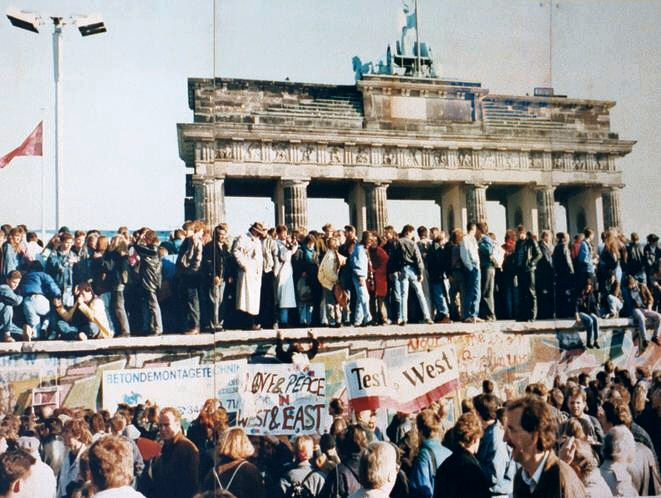I realize that this is more personal a reflection than I usually post here, but while one of the goals of education is to help you realize that you are part of a larger world, another equally critical goal is to learn to recognize when the larger world has become part of your identity.
November 1989 was, for me, the month my world changed. It wasn’t change in a bad way; no one had died and nothing horrible had happened, rather, it was that the things I took for granted as the framework I knew changed. For most of my life, I had grown up, gone to college and graduate school, and worked in southern California. But on October 31, 1989, I was hired to work at the Boeing Computer Center in Bellevue near Seattle, WA, and we moved the whole family there over Thanksgiving weekend.
Between the time I received the job offer and the time I actually started working on my new project (and not just attending orientation meetings) on January 2, 1990, the world I had grown up in changed as well. I am a child of post World War II, and the framework that surrounded family and school and church were the space race and the Cold War, the division of the world into the US and USSR camps. This division of powers was history we learned in school, the background of the work I did in political and military studies for my jobs, the context of the work my brother did in the US Army while stationed at a NATO facility in Germany. The images of coiled barbed wire and high parallel concrete walls with no-man’s land between them inspired the popular spy movies and TV series, and the news carried stories of escapes and captures, airlifts and confrontations at checkpoints.
The division of Germany was not just an abstract event that happened somewhere else: it intruded into my own family reality. My mother had cousins on both sides of Germany’s Iron Curtain, husbands and wives, parents and children who had been separated for years by war and politics. Thanks to my mother’s diligence and hard work and my cousin’s perseverance, we have the letters they wrote my grandparents, my mother, and her siblings, transcribed in the original German with my mother’s English translations. It was a work of dedication and love, and it must have been so hard for her to do, because the letters provide a heartbreaking picture of the trek my cousins made from Odessa in Ukraine across eastern Europe, expelled by the Russians for their German heritage, reviled on their journey for their connection to a country they had never lived in, unwelcome when they reached a broken, defeated, divided Germany — if they did: some died on the way, others were detained by the advancing Russian army and died elsewhere, in labor camps in Siberia.
But in 1989, after years of statement and division, the economic situation drove Eastern European countries to protest the USSR’s policies and allow more travel across their borders. Hungary and Poland removed border walls and opened crossings. In Berlin, and along the East Germany border with West Germany, protesters gathered to demand an end to the the policies that kept them from families and friends on the other side of the Wall. Finally, at nearly midnight on November 9, the East German guards gave up and opened the checkpoints. The Ossis swarmed through, to be met by the Wessis waiting with flowers and champagne. It was a wild party.
The wall came down, in chunks, to be scattered all over the world in pieces large and small, planted in parks and museums as symbols of freedom. There’s one in the Seattle Center: I’ve seen it.
Crossing in front and then behind it was my way to complete a journey so many could not.

